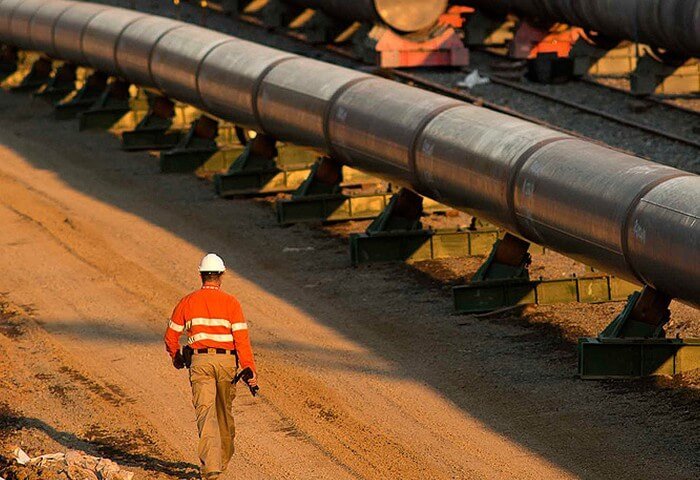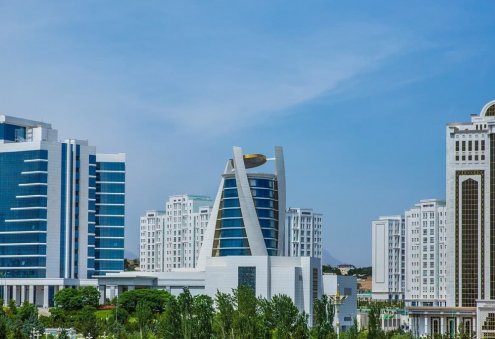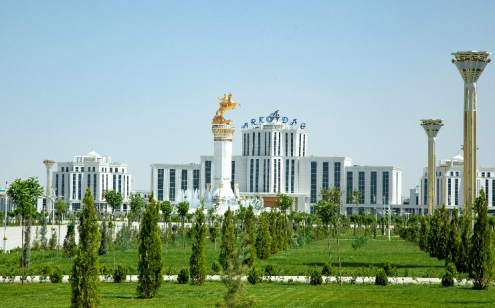Afghanistan
The realization of the Turkmenistan-Afghanistan-Pakistan-India (TAPI) natural gas pipeline project is among the priority projects that can contribute to the development of Afghanistan. Afghanistan is expected to receive from $300 million to $500 million from the annual gas transit fees alone. If these fees are directed towards the construction of the country's human and physical infrastructure, it will contribute to the socio-economic development of the country.
The TAPI pipeline also offers Afghanistan the opportunity to become an important transit hub for regional energy flows. With the implementation of the pipeline, Afghanistan's integration with both Central Asia and South Asia will be easier and faster. In addition, it will create new employment opportunities in the country, including the security personnel to be employed in the pipeline, thus making socio-economic contributions to the lives of the people of Afghanistan.
Pakistan
The rapid economic growth in Pakistan and India in the recent period has increased their energy demand. The deficit of energy resources caused serious power cuts in these countries. Pakistan's economy has been growing at an average rate of 4.1% since 1990. But continued growth has also had to contend with fuel energy shortages, along with frequent power cuts that have kept the manufacturing sector from operating at full capacity. According to estimates made by the International Development Association, insufficient energy supply negatively affects Pakistan's economic growth. The Pakistani government supports natural gas consumption to prevent power cuts and create new energy alternatives.
However, despite the increase in gas consumption, natural gas production cannot meet the demand. As demand continued to rise, Pakistan faced an urgent need to import natural gas as there were no new gas fields to replace the depleted reserves. Therefore, Pakistan started to import gas through its first liquefied natural gas terminal in March 2015. As of August 2016, Qatar has delivered 2.8 million tons of LNG to the country.
Natural gas pipelines are another alternative for Pakistan to address its energy shortage issue. The TAPI pipeline offers Pakistan the opportunity to import 14 billion cubic meters (bcm) of natural gas annually. The reinforcements to be made from TAPI to the industrial and energy units planned to be built along the route will increase the energy security of the country.
The role of natural gas is particularly important in electricity generation in Pakistan: it accounts for 45.08% of the country’s thermal electricity production. Natural gas traditionally dominates Pakistan's thermal power generation, and recently access to natural gas, both domestically and abroad, has become a crucial issue for the country. For these reasons, the TAPI is one of the most important projects for Pakistan.
India
Rapid economic growth in India since 1990 has increased the energy demand and its imports significantly. This makes it necessary for India to increase its energy security, develop new import routes, at the same time increase energy efficiency and use more renewable energy.
This energy demand growth is expected to continue along with India's economic growth. According to BP Energy Outlook 2035, India will account for 9% of world energy consumption, while its share in global production will remain at 5%. In the same period, natural gas demand will increase by 131% and domestic natural gas production will be far from meeting consumption. For this reason, India's natural gas imports are expected to quadruple by 2040. This emerging and future energy gap explains India's interest in TAPI and the importance of the project for India.
Moreover, the project has the particular advantage of providing an entry point to Central Asia, enabling future energy deals or similar pipelines to be concluded with this energy-rich region. This is a very important factor for a large economy with a large population like India. In addition, the pipeline could lead to the creation of a trade corridor between the four countries, stretching as far as Kazakhstan.
Turkmenistan
In addition to creating a long-term reliable market for Turkmenistan, TAPI fully complies with the country's policy of diversifying its energy exports. The income from the TAPI pipeline will contribute greatly to the country's economy. In addition, the pipeline will help develop and deepen socio-economic ties with energy importing countries such as India.
The project also has geopolitical importance for Turkmenistan. It is estimated that the pipeline will supply 60 to 90 million cubic meters of natural gas per day. It is expected that 42% of the supplied natural gas will be purchased by India, 42% by Pakistan and the rest by Afghanistan. In addition, with the realization of the project, Turkmenistan will become one of the most important energy export centers of the region.
Nurmyrat Mommayev,
PhD Candidate at Marmara University's Department of Political Science and International Relations in Istanbul, Turkey


















